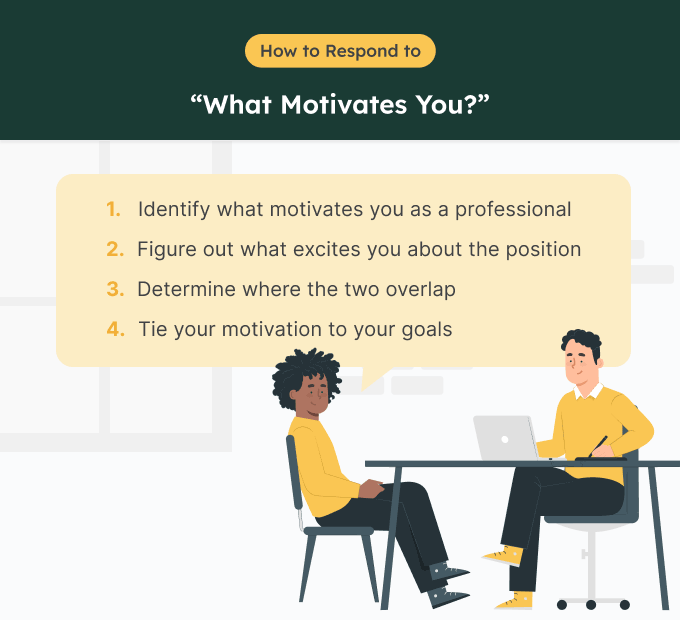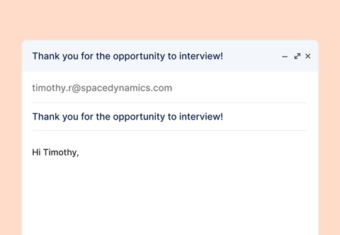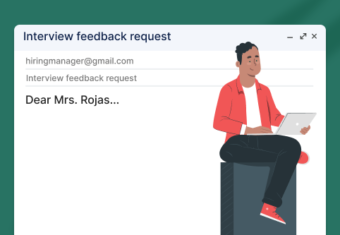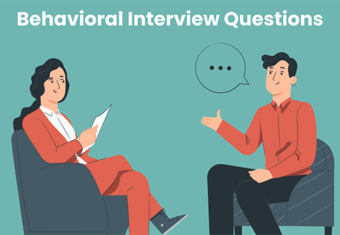When you’re getting ready for an interview, you need to prepare yourself for a wide range of interview questions. While many of them will be specific questions about your particular experience, skills, and expertise, others are more general, like the interview question “What motivates you?”
While there’s not really a wrong way to answer this question, there is a way to answer that makes your interviewer think, “This candidate is a great match for the role!”
We’re going to help you figure out what that answer is.
Why do employers ask the interview question “What motivates you?”
Employers have different versions of this popular interview question. Here are some variations to watch for:
- What drives you?
- What energizes you to perform your best?
- What motivates you to come to work every day?
- What motivates you to succeed?
- What inspires you to do your best?
Ultimately, employers who ask these questions are all looking for the same thing.
It should go without saying that when employers ask, “What motivates you”, they really mean “What motivates you other than a paycheck?” We all know that compensation is a huge driving factor behind any job search, but including that in your answer will do more harm than good.
This is especially true if you’re currently employed and this question is a follow-up to “why are you leaving your current job?”
Similarly, employers who ask this question aren’t really looking for broad life philosophies, unless those philosophies directly relate to the work you do.
When asking about your motivation, employers are trying to get some insight into who you are as a professional. What they’re really looking for is three things:
- If your interests, values, and goals align with the company’s
- What kind of employee you’d make
- If you’re a good fit for the position
Here’s how to target all of those questions in your answer:
How to answer “What motivates you” in four easy steps
There’s no one-size-fits-all answer to “What motivates you?” Each answer is personal and should be based on your own personality and work style.
There are, however, three basic components to a great answer that shows employers how you’d be a great employee and an excellent match for the role. These are:
- Your key professional motivators
- Your interest in the work and/or industry
- Your career goals
If you do your research and adjust your response accordingly, including these elements in your answer will show employers why you’re an excellent fit for the position.
Here are four steps to determine how you should answer “What drives you”:
1. Identify what motivates you as a professional
There are two kinds of motivation: intrinsic and extrinsic. You’re intrinsically motivated when you do something for the enjoyment of it, and you’re extrinsically motivated when you’re seeking or avoiding some other outcome.
Figuring out which motivators drive you can help you determine what positions will be rewarding for you and why. This knowledge will better equip you to sell yourself as a candidate to employers.
Extrinsic motivation (driven by reward or punishment)
Extrinsic motivation comes from external factors that provide reasons for behaving in a certain way. Here are some examples:
- Salary
- Rewards
- Benefits
- Competition
- Growth opportunities
- Praise
- Respect
- Social connection
- Influence
- Promotions
- Getting fired
In some fields, strong extrinsic motivation can be an asset. If you’re applying to work in a fast-paced environment with a lot of strict deadlines and you’re highly motivated by deadlines, then you’d be a good fit for the role.
Highlighting your relevant extrinsic motivations that demonstrate how you would thrive at work can help you show the interviewer you’re the best candidate.
Intrinsic motivation (driven by enjoyment)
Intrinsic motivation, on the other hand, comes from our internal reasons for doing things that don’t simply rely on the result. These are things like:
- Pleasure
- Interest
- Challenge
- Curiosity
- Control
- Personal values
- Beliefs
- Sense of purpose
If you’re intrinsically motivated in your work, then you do it because you find it fulfilling on some level. This can be a very strong selling point for employers. Employees who are intrinsically motivated in their professional life are more likely to be committed employees dedicated to their work and proactive about finding ways to improve.
If you’re looking for work in the nonprofit sector, for instance, having a deep personal commitment to the cause will make you a more dedicated, hardworking, and perseverant employee – traits that are extremely valuable to employers.
If you can identify what aspect of your target role will be fulfilling for you and highlight this in your answer, then you’ll also be halfway to answering their next question, “Why should we hire you?”
2. Figure out what excites you about the position
To determine what your relevant motivations are for the position you’re applying to, figure out what interests you about the role.
- When you read the job description, what jumps out to you?
- What makes you want to apply?
- What areas are you excited about gaining experience in?
- Are there key skills you’re eager to learn?
- Are you looking for a more collaborative team?
- Are you looking to grow into a managerial role?
- Does the company culture provide the optimal environment for you to thrive professionally?
Make a list of all the things about the job you find appealing, and try to understand why they appeal to you.
3. Determine where the two overlap
Once you’ve figured out what motivates and interests you about the position, write them out as lists and identify any overlap between the two. These are the key motivators for you in this particular role.
Here’s what that might look like for a graphic design position:
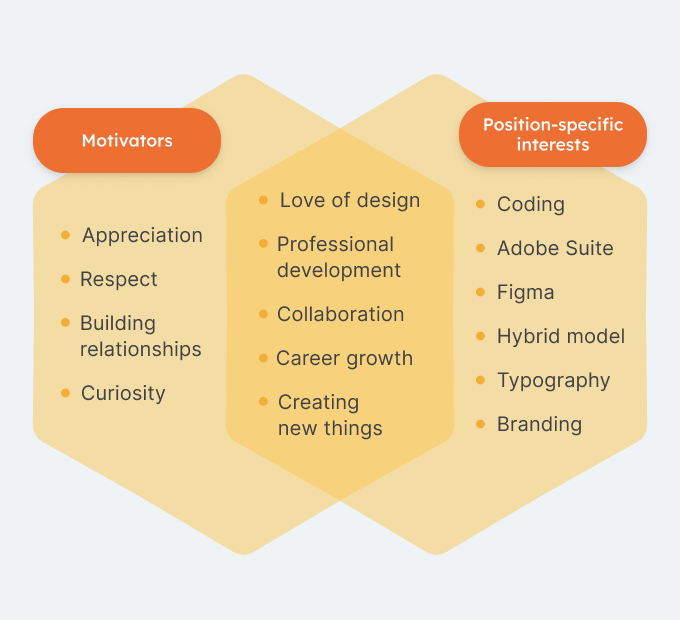
It might sound like a lot of work, but pinpointing the overlap between your interests and motivations will help you clearly communicate to employers why you’re a great match for the role.
4. Tie your motivation to your goals
This last step is optional, but provides a simple way to make sure your answer is effective.
Demonstrating how your professional goals motivate you shows your interviewer what results you’ll achieve as an employee.
Software engineer example
I’ve always been motivated by learning new skills and honing existing ones. Right now I’m trying to achieve my goal of mastering five programming languages.
From this example, the interviewer will know that they can expect the candidate to develop a diverse technical skill set that will make them a valuable member of the team.
Moreover, they’ll likely be impressed by their drive and make note of their readiness to adapt, learn, and build on their skills.
If you can illustrate how your own professional goals are aligned with company goals or needs, you’ll make your answer even more enticing.
Head of HR example
I know that your company is currently poised to launch a new DEI initiative. As a professional, it is my goal to apply my industry knowledge and skills to guide hiring practices that promote diversity, equity, and inclusion.
This example shows the interviewer that the candidate’s goals are perfectly aligned with the company’s. Demonstrating alignment like this gives employers a solid reason to hire you.
“What motivates you” answer examples
Here are three examples of how to answer this tricky interview question to help you get a feel for what makes an informative response:
“What motivates you at work” sample answer
As a designer, I find that I’m really driven by the collaborative process of designing on a team. I love working with others on creative projects because our interactions spark new and exciting ideas that wouldn’t have materialized otherwise, leading to designs that are innovative, fresh, and energizing.
I know that your design team is well-known for its collaboration. I’d love to apply my extensive technical background and diverse experience to help lead a highly collaborative and progressive design team at [company name].
“What motivates you to do a good job” sample answer
I find that working in a competitive environment really challenges and stimulates me. My competitive spirit drives me to do my best every day. I enjoy tracking my sales, analyzing my performance, and finding new ways to succeed and achieve greater results.
Your company regularly holds sales competitions, and that’s exactly the kind of activity that motivates me to excel. I aim to become the top performer and set the bar for new sales goals.
“What motivates you to work hard” sample answer
In both my academic and professional career, I have been motivated by the urgent need for greater environmental protection, care, and positive change. I believe very strongly in taking action to combat climate change, for current and future generations, and know that it’s an undertaking that requires complete dedication, perseverance, and commitment.
Earthjustice has been at the forefront of many precedent-setting legal battles for environmental justice. I’d love to contribute to Earthjustice’s commitment of engaging with the issues in ways that have a significant and lasting impact. Working at your company will inspire me every day to work hard to bring about positive change.
How to answer “What motivated you to apply for this position?”
“What motivated you to apply for this position” is a common variation of the motivation question. It limits the scope of what employers are looking for in an answer, and requires a slightly different approach.
When employers ask about your motivation for applying to a specific position, what they want to know is why you’re interested in the position, and whether you’re suitable for the job.
To answer this specific variation, focus on:
- The specifics of the role that drew you in
- Why you’re a good fit
- Your professional goals
Here’s an example:
“What motivates you to apply for this role” example answer
I saw in your listing that you’re looking for a highly organized administrative assistant who has excellent multitasking and time management skills. Based on my experience as a TA managing classes of over 100 students, where I organized course materials, graded papers and exams, and tracked grades and assignments, I believe that I am a good fit for this position. I’d love the opportunity to work at my alma mater and help students apply to programs that further their academic and professional prospects.
What to avoid when answering “What motivates you?”
When you’re answering “What motivates you”, there are a few topics that are best avoided:
- Money or benefits. Everyone knows that this is part of why you want a job, but telling an interviewer it’s the reason you’re there will only make it look like you don’t care about the actual job.
- Negative motivators. These are outcomes that motivate you because you’re trying to avoid them (for example, getting reprimanded or fired, or letting your career stagnate because you didn’t change positions). Try to focus on the positives.
- Religion or politics. Unless directly related to the position, these are two topics that have the potential to do more harm than good.
Additional interview resources
Now that you know how to respond to “what motivates you?”, it’s time to familiarize yourself with some of these other common interview questions:
Click to rate this article
4.8 Average rating



